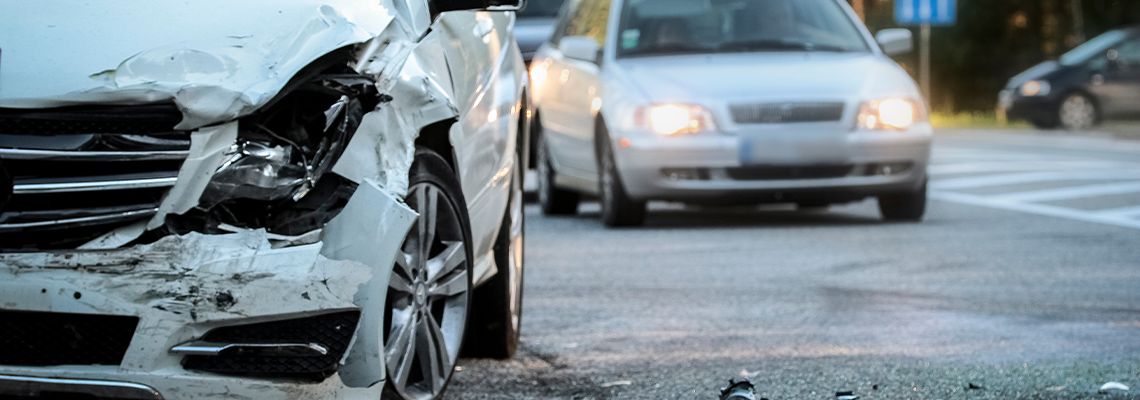
I Was Involved in a Hit and Run. Do I Still Have a Case?
Consider this scenario: After a long and taxing day at work, you're on your way home, navigating the familiar route with care. Suddenly, the unexpected happens—your vehicle is struck by another. The shock and confusion quickly replace the calmness of your evening drive. Before you have the time to gather your bearings and comprehend what's just transpired, the other driver, speeds off into the distance, leaving you alone to face the fallout of the collision. We understand how traumatizing and disorienting such an experience can be, potentially leaving you with unanswered questions and a sense of injustice. We have experienced this ourselves.
Dealing with such a situation may seem daunting, but you're not alone. We, at The Haslam Firm, are committed to standing by your side, and guiding you through the complexities of dealing with hit-and-run accidents in Texas. We aim to empower you with the necessary knowledge to understand your rights and the possible legal recourse available in such circumstances. Rest assured, even in situations where the at-fault party flees the scene, leaving you to deal with the aftermath, Texas law provides mechanisms for victims of hit-and-run accidents to seek and secure compensation for their losses.
Texas Is a Fault Insurance State
First, it's crucial to know that Texas operates under a fault insurance system. This means that whoever causes an accident is responsible for covering the damages and injuries that result from it. But what happens when the at-fault driver flees the scene? Identifying them can be a real challenge.
Requirements When a Collision Occurs in Texas
In Texas, there are several requirements post-crash. These include:
stopping at the scene of the accident,
exchanging information with other drivers involved,
rendering aid to anyone who is injured if possible, and
reporting the accident to law enforcement if there are injuries, death, or property damage exceeding $1,000.
In a hit-and-run scenario, the responsible driver doesn't fulfill these requirements, making it more challenging to gather the necessary information for filing a claim.
Obviously seek medical attention quickly, if needed.
You or your passenger, try and photograph the scene with your phone and even use a video recorder to record anyone else's description of the collision. Try and see or find any homes, businesses or other area cameras that may have recorded the occurrence.
Try and photograph any car that stops, license plate and make of the vehicle. Get witness information- name, cellphone, email.
Your Options for Filing a Claim After a Hit and Run
Even if the at-fault driver can't be identified, you still have options. There are multiple avenues available for you to recoup your losses. Here are a few:
Uninsured or Underinsured Motorist Coverage: This component of your insurance policy comes into play when the driver at fault either lacks insurance or cannot be located, as is often the case in hit-and-run collisions. By filing a claim under this provision, you can receive compensation from your own insurer for medical bills, lost income, and other incurred damages.
Collision Coverage: Collision coverage is another part of your own auto insurance policy that could be utilized. It’s designed to cover the repairs to your vehicle following an accident, irrespective of who was at fault.
Personal Injury Protection (PIP): PIP is a coverage that pays for medical expenses and lost wages, regardless of who caused the accident. This can be a viable option if you have this coverage as part of your insurance policy.
Lawsuit Against the At-Fault Driver: If the hit-and-run driver is eventually identified, you can file a lawsuit against them for your damages. However, this is contingent on being able to locate the offending party. Most states have a 2 year statute of limitation and at least file a Jane/John Doe case. Check with an attorney as soon as possible.
In the face of a hit-and-run accident, remember that you are not powerless. From your own insurance coverage to potential legal action against the at-fault driver, there are various avenues you can pursue to reclaim your losses. While the experience can be distressing, remember that help is available.
Steps to Take if You Were in a Hit-and-Run
If you're involved in a hit-and-run accident, it's essential to take several steps:
Get to safety and do not attempt to chase the person who is fleeing the scene. Your safety is paramount. Get Medical attention as soon as possible.
Take note of as many details as possible - the car's make, model, and color, any unique or identifying marks on the car like bumper stickers or dents, the license plate number if possible, and the driver's appearance.
Use your cellphone and take video and photos of the scene and witness statements.
Speak to any witnesses and collect their contact information. Their statements could be invaluable in identifying the at-fault driver.
Notify the authorities. Report the incident to the police as soon as possible.
Contact your insurance provider. Share the details of the accident and provide them with all the information you've gathered.
Hire an experienced personal injury attorney. An attorney can guide you through the legal process, help you navigate insurance claims, and advocate for your rights.
At The Haslam Firm, we have experience handling hit-and-run collision cases. We understand the complexities involved and are committed to helping you seek the compensation and accountability the law allows. If you've been involved in a hit-and-run, don't hesitate to reach out to us. Remember, you're not alone in this. We're here to fight for your rights.
